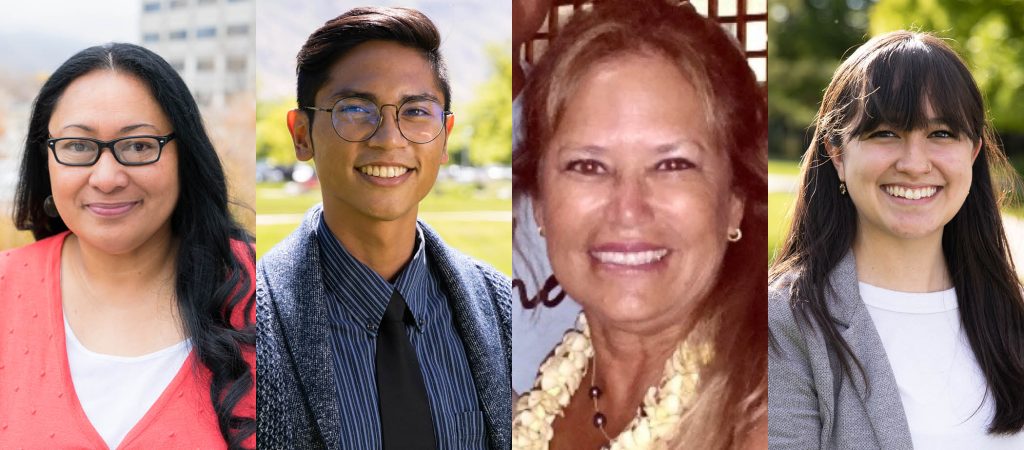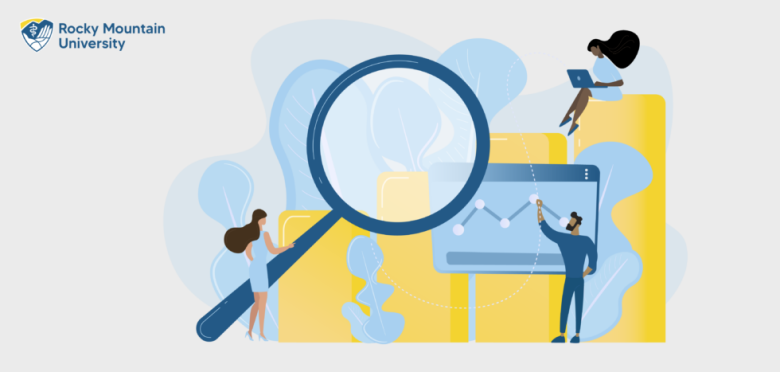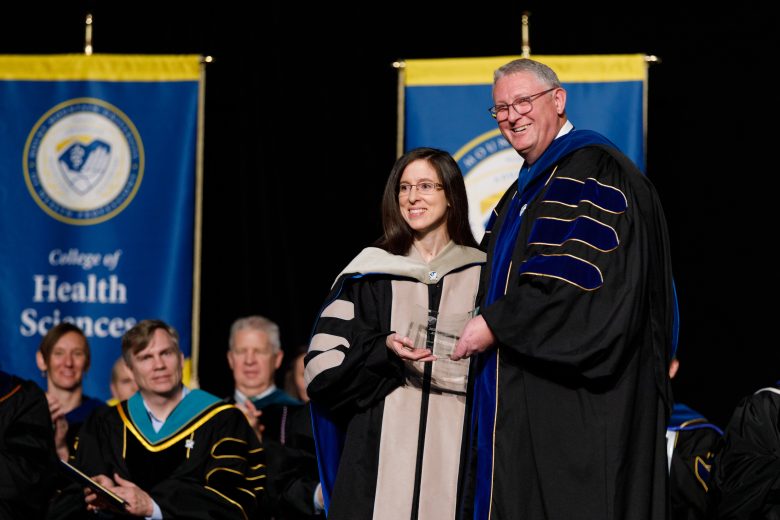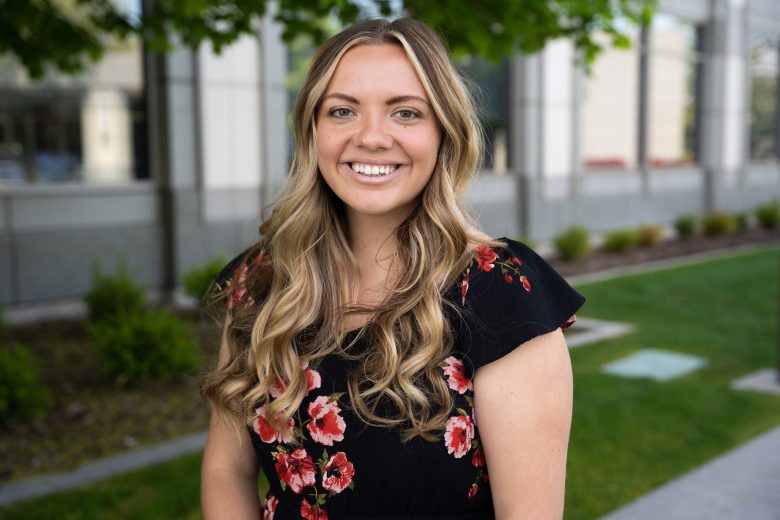RMUoHP employees and students share their experiences for Asian American & Pacific Islander Heritage Month

At Rocky Mountain University of Health Professions (RMU), we recognize that “by honoring our differences and similarities, we strengthen institutional and community connections” (see university core value “Inclusivity”).
Every May we recognize the contributions of our Asian and Pacific Islander community here in the US as part of Asian American and Pacific Islander (AAPI) Heritage Month.
Understanding the strength that comes from sharing backgrounds, cultures, and experiences, RMUoHP students, staff, and faculty share their stories to help us learn and become better healthcare providers.
Of Samoan heritage but born and raised in New Zealand, Mary Ah Mu lived in Hawaii while attending Brigham Young University as a first-generation college student. Ah Mu described how receiving healthcare was not always positive.
As a high school student, she was admitted to the hospital for emergency surgery. Following the surgery, Ah Mu explains how the doctor, accompanied by a group of medical students, asked her a personal question, but not understanding what he was referencing, the doctor responded condescendingly and sounding irritated. “I’ll never forget the humiliation I felt,” said Ah Mu
“The doctor could’ve had better empathy and understanding had he known that in our culture to speak openly about personal bodily functions was almost taboo,” explained Ah Mu.
But while working as a receptionist in a medical clinic for a small community in Hawaii, Ah Mu saw providers who “were compassionate, understanding, and genuinely cared for their patients who never felt judged.”
Ah Mu, who currently works for the Office of the President at RMU, believes that diversity among healthcare providers “give confidence to the underserved communities to take care of health issues that I know many put aside for varying reasons, with culture being one of them. I know for my own family, members who suffer from diabetes don’t take their health seriously but the moment a Polynesian provider speaks to them, their perspective and attitude changes.”
Reflecting on her own experiences, she added, “I wholeheartedly believe that more diverse providers will bridge the gap for the underrepresented communities.”
As a Filipino and raised in a military family, Doctor of Physical Therapy (DPT) student Jericho Piansay’s childhood exposed him to different people and cultures, having lived in Hawaii, Virginia, and Japan. Piansay’s first experience with physical therapy as a child was on base in Okinawa, Japan, and to him it felt like a normal doctor’s visit.
“As I was growing up, I realized that feeling comfortable in the doctor’s office or getting the right care isn’t always the case for everyone and it’s helped me appreciate all the health care providers across my time growing up to help me feel comfortable,” said Piansay. “These experiences motivate me to be able to provide the same level of care for my patients no matter who they are and help them feel comfortable when seeing them.”
Piansay looks forward to his career as a physical therapist with the hope that he can allow patients of similar backgrounds to feel comfortable throughout the healthcare process.
For Alicia Kelly, a “half-Filipina Utah transplant from Colorado” and student in the Master of Science in School Counseling (MSC) program, she recognized how her background provides her a unique perspective. “I’ve had the unique experience of viewing the world through both my whiteness and my culture as a Filipina. Through certain aspects of my culture and background, I can safely and easily access healthcare and counseling resources. However, once I do utilize those resources, I’ve come to notice that there are many culturally important aspects of my background that may be (and have been) misunderstood as I’ve received services.”
She looks forward to becoming a school counselor, so she can represent other individuals who may feel as though they aren’t seen or heard in institutional spaces. “I hope to remove barriers in my career that prevent accessing important resources, as well as making people feel safe and heard in those spaces once those barriers are removed,” Kelly said.
She added, “Because of my diverse background, I have a deep desire to combine the importance of representative mental healthcare with the importance of education. Providing a comforting, understanding, and welcoming space for all students as they receive their education has become a huge priority of mine.”
A seasoned nurse practitioner, Lauriann Mahealani Broad grew up with her family on the island of Oahu, embracing her Hawaiian culture and heritage. Her paternal grandmother, who was a licensed practical nurse (LPN), inspired her own professional course as she used her cultural knowledge to care for others in the community.
“I think, although not specific to Hawaiian, the process of ‘talking story’ with patients is vital here in the islands. Talking story is sharing what and who your relatives are–making a connection through common family members or friends, or cultural practices is vital in establishing trust. Establishing trust I feel is imperative in helping patients establish a health provider bond and acceptance with the goal of allowing patients to accept our help,” said Mahealani Broad.
She uses that cultural practice to inspire her own practice as a nurse. “Talking story with people allows the patient to see us as a real person who is there to help them. Being down to earth and taking time to listen to patients although their culture may be totally different, allows for a transparency and acceptance of the care we bring in assisting them and an opportunity in treating their health conditions.”
As a graduate of the Doctor of Nursing Practice (DNP) program, Mahealani Broad says that “supporting diversity lies in sharing commonalities with others…It’s smiling and showing you care rather than being wrapped up with charting and rushing a patient through a scheduled appointment–taking the time to help them achieve what they want in health and making them aware that you are there to be supportive and not judgmental.”
For Ah Mu, Piansay, Kelly, and Mahealani Broad, sharing their cultural experiences is about helping healthcare professionals and healthcare as a whole improve and be more empathic practitioners.



